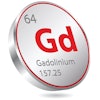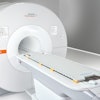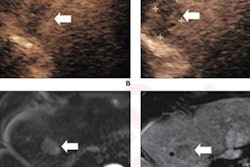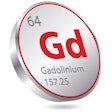There's so much to like about MRI. For starters, it doesn't impart radiation, it's good for diagnosing and staging disease, and it helps clinicians better track the effects of treatment.
Research published in the past year has highlighted the modality's range -- from assessing sleep apnea and prostate cancer risk and predicting pain improvement in people with knee osteoarthritis to detecting brain metastases in women with breast cancer -- so it's no wonder MRI's versatility will be on display at this year's RSNA meeting.
Presenters from around the world will share results from a range of studies that attest to MRI's benefits. Look for research that explores whether MRI could be an effective alternative to CT for finding pulmonary nodules (spoiler alert: Yes); how combining the modality with contrast-enhanced CT detects liver metastases in colorectal cancer patients; and how best to image cerebrospinal fluid leaks.
Let's face it: We're now living in an artificial intelligence (AI)-infused world. Meeting attendees can expect to hear about how AI can boost MRI's performance -- from improving radiologists' diagnostic accuracy for identifying prostate cancer and reducing unnecessary biopsies to enhancing the image quality of liver studies and accelerating MRI acquisition times.
Be prepared for dynamic discussion about what the combination of MRI and ultrasound can accomplish, particularly for both diagnosis and treatment of prostate cancer. And researchers will attest as well to the modality's efficacy for women's imaging applications, highlighting its ability to assess adenopathy in women vaccinated for COVID-19, its capacity to predict breast cancer treatment response, and the viability of using abbreviated protocols for breast cancer screening.
Finally, look for sessions that will address overall MRI safety as well as the safe use of the modality in patients with implanted cardiac devices. Presenters will also describe lower-dose contrast agent alternatives that could mitigate patients' risk of gadolinium buildup. The RSNA will also offer primers on advanced MRI techniques (perfusion, spectroscopy, and diffusion tensor imaging, or DTI), contrast "use and abuse" in pediatric imaging, and the evaluation of uterine masses, to name a few.
MRI contributes so much to the healthcare enterprise, allowing clinicians to better care for their patients. Read on for specific scientific abstracts we're highlighting as part of our premeeting coverage. And if you'd like to take a look at the conference's complete catalog of scientific abstracts and educational programs, check out the RSNA 2022 meeting program.
Breast MRI access grows among women covered by Medicare
Sunday, November 27 | 2:30 p.m.-3:30 p.m. | S5-SSBR02-5 | Room E450B
Women with Medicare insurance have seen increased access to breast MRI exams over the past decade, especially in outpatient hospital settings, according to this presentation.
Is MRI safe for patients with implanted cardiac devices?
Sunday, November 27 | 2:30 p.m.-3:30 p.m. | S5-SSMS01-4 | Room E351
This Sunday afternoon session will explore how a close monitoring protocol conducted by nurse practitioners can ensure that MRI is safe for patients with cardiovascular implantable electronic devices.
Gadopiclenol shows promise as gadobutrol alternative for MRI
Sunday, November 27 | 2:30 p.m.-3:30 p.m. | S5-SSMS01-6 | Room E351
An investigational macrocyclic gadolinium-based contrast agent shows promise for use for contrast-enhanced MRI -- at half the dose of other agents, according to research to be presented during this Sunday scientific session.
MRgFUS-guided therapy an effective prostate cancer treatment option
Tuesday, November 29 | 12:15 p.m.-12:45 p.m. | T5A-SPGU-1 | Learning Center - GU DPS
MRI-guided focused ultrasound ablation (MRgFUS) is a viable treatment option for men with localized, clinically significant prostate cancer, according to a poster to be presented by Canadian researchers on Tuesday.
Microultrasound comparable to MRI for detecting prostate cancer
Wednesday, November 30 | 8:00 a.m.-9:00 a.m. | W1-SSGU05-6 | Room S406B
Microultrasound-targeted biopsy is comparable to multiparametric MRI-targeted biopsy for detecting prostate cancer, according to study results to be presented in this Wednesday morning session.
Is chest MRI a viable alternative to CT for lung nodule follow-up?
Wednesday, November 30 | 9:00 a.m.-9:30 a.m. | W2-SPCH-7 | Learning Center - CH DPS
Chest CT has long been the go-to for lung nodule follow-up. But research to be presented Wednesday morning suggests that chest MRI may be a reasonable, nonradiation alternative.
Abbreviated MRI plus contrast-enhanced CT finds more liver metastases
Wednesday, November 30 | 9:30 a.m.-10:30 a.m. | W3-SSGI12-3 | S404
An abbreviated MRI exam combined with a contrast-enhanced CT study in patients with colorectal cancer is an effective way to identify liver metastases, according to this scientific presentation on Wednesday morning.





















